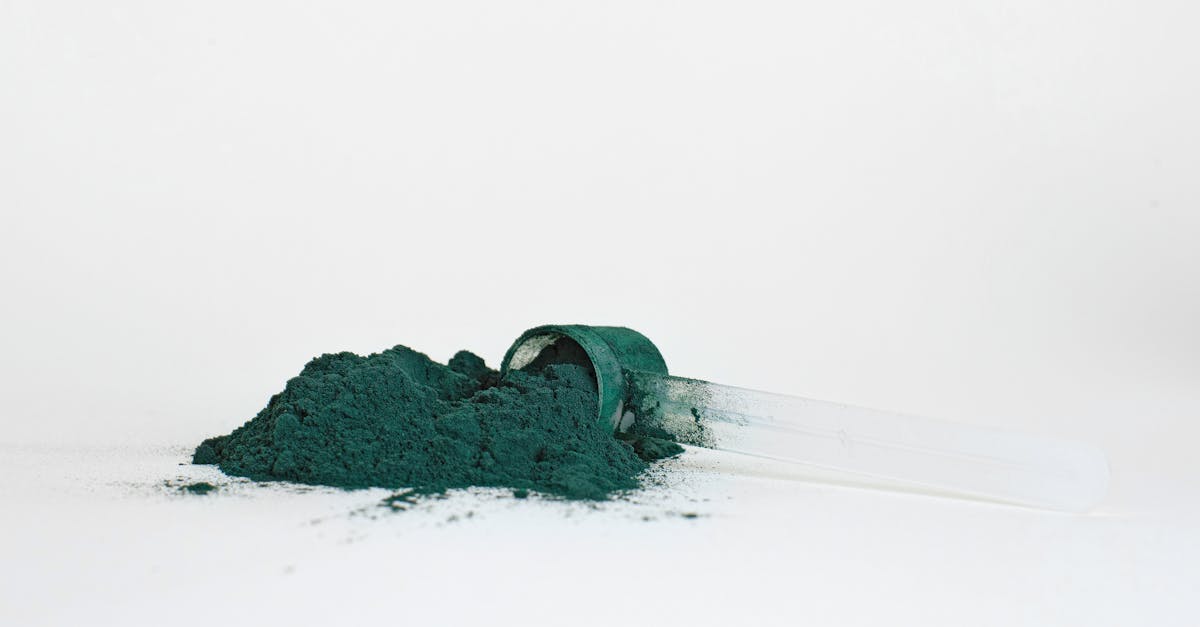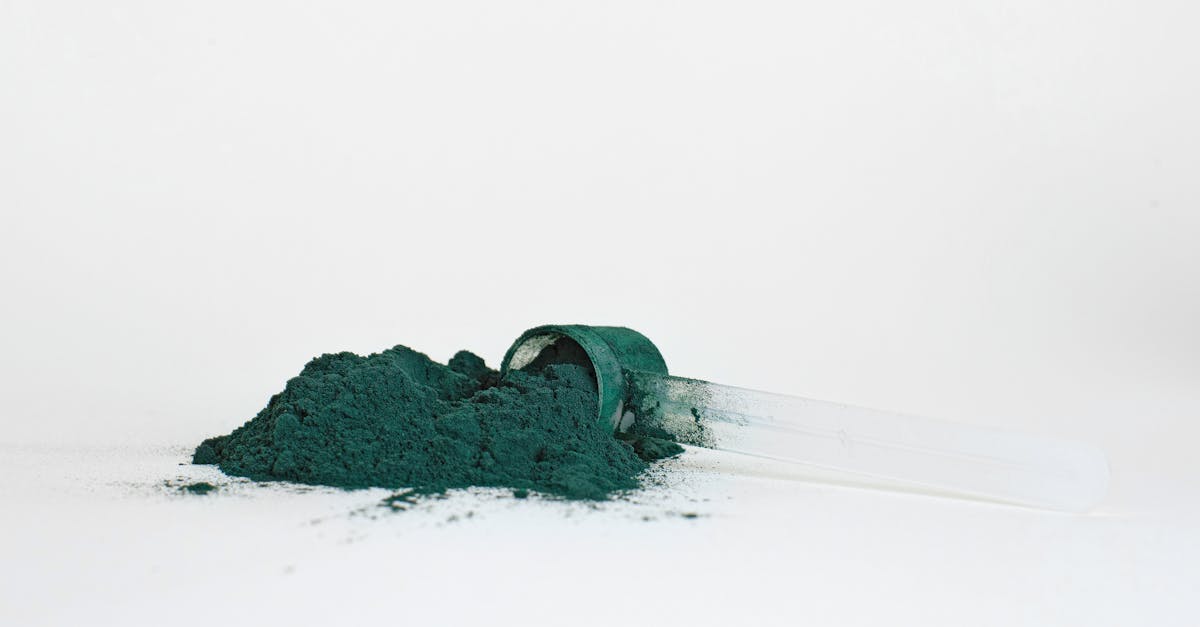
Introduction to Spirulina
In recent years, spirulina has emerged as a shining star in the world of superfoods, captivating health enthusiasts and nutritionists alike. Known for its vibrant blue-green hue, spirulina is a type of cyanobacteria that's making waves in wellness circles. Dubbed "nature's multivitamin," it's recognized for its impressive nutritional profile, offering an abundance of proteins, vitamins, and antioxidants. This ancient algae, consumed by civilizations like the Aztecs, is hailed for its potential health benefits, from boosting energy to supporting immune function. As the spotlight on plant-based nutrition grows, spirulina is gaining traction as a versatile, powerful ingredient. So, what makes spirulina such a nutritional powerhouse?
Nutritional Profile of Spirulina
Spirulina boasts a remarkably rich nutrient content that sets it apart from many other superfoods. Composed of up to 70% protein by dry weight, it is one of the most protein-dense foods available. This high protein content is not only beneficial for muscle repair and growth, but it also provides all essential amino acids, making it a complete protein. Additionally, spirulina is packed with vitamins B1, B2, B3, and minerals such as iron, magnesium, and potassium. Its antioxidant properties, derived from compounds like phycocyanin and beta-carotene, support cellular health and combat oxidative stress. This exceptional nutrient density makes spirulina a valuable addition to any diet.
Health Benefits of Spirulina
The health benefits of spirulina extend across various domains, contributing significantly to its superfood status. Its high protein and vitamin content can enhance energy levels, making it a favorite among athletes. Spirulina is also praised for its potent antioxidant properties, which may help in reducing inflammation and protecting against various chronic diseases. Studies suggest that spirulina may lower bad LDL cholesterol levels and promote heart health. Furthermore, its immune-boosting qualities are attributed to the presence of phycocyanin and polysaccharides, which aid in strengthening the body's defenses. The potential benefits of spirulina continue to attract those seeking a holistic approach to health and wellness.
Use of Spirulina in Diets
Incorporating spirulina into daily diets is both simple and versatile, with a myriad of creative ways to enjoy its benefits. Available in powder, tablet, or capsule form, spirulina can easily be added to smoothies, juices, or nutritional shakes, enhancing both their nutrient content and vibrant color. Sprinkling some spirulina powder over salads or integrating it into homemade energy bars is a popular choice. In vegan and vegetarian diets, spirulina serves as a plant-based protein source, an essential component for those seeking to meet their daily nutritional needs without animal products. Its mild, earthy flavor complements a variety of dishes, making it an effortless dietary enhancement.
Spirulina's Environmental Impact
Beyond personal health benefits, spirulina offers promising environmental advantages as a sustainable food source. As a microalgae, it grows in both fresh and saltwater, requiring less land and water than traditional crops or livestock. Its ability to thrive under diverse environmental conditions makes it a resilient resource in combating food insecurity. Spirulina cultivation yields higher protein per hectare than traditional crops, without the need for fertilizers or pesticides. Its cultivation also absorbs carbon dioxide, contributing to reduced carbon footprints in the agricultural sector. These attributes position spirulina not just as health-supportive, but environmentally conscious, offering a sustainable solution for a growing global population.
Potential Precautions and Side Effects
While spirulina is celebrated for its nutritional benefits, it is essential to be aware of potential side effects, particularly for individuals with specific health conditions. Some may experience mild digestive symptoms, such as nausea or diarrhea, when first introducing spirulina into their diets. People with autoimmune diseases or allergies to sulfur compounds should consult healthcare professionals before use. Additionally, the importance of sourcing high-quality spirulina cannot be overemphasized. Contamination with heavy metals or toxins from polluted water sources can pose health risks. As the market for superfoods expands, ensuring quality and safety in spirulina products is crucial for consumer confidence and health.
The Market and Popularity of Spirulina
The market for spirulina is experiencing remarkable growth as consumers increasingly gravitate towards natural, health-promoting foods. Within the vast landscape of plant-based nutrition, spirulina stands out for its versatility and potent nutrient content. Its bright, distinctive color has even made it popular in culinary endeavors, adding a vibrant visual appeal to dishes. Spirulina's surge in popularity can also be linked to the rise in demand for natural supplements and holistic wellness solutions. Whether featured in health-focused restaurants, wellness blogs, or global health food exhibitions, spirulina's prominence in the world of superfoods is indisputable, capturing the attention of both seasoned health enthusiasts and newcomers alike.
Future Perspectives on Spirulina
As research continues to unveil the multifaceted applications of spirulina, its role in future food innovations appears promising. Scientists are exploring new cultivation techniques to maximize yield and sustainability, including vertical farming and bioreactor technologies. Spirulina's potential applications extend beyond nutrition, entering realms such as biofuel production, cosmetics, and pharmaceuticals. The versatility of this microalgae, combined with its sustainable cultivation, positions it as a critical player in addressing global challenges in food security and ecological impact. The continued exploration of spirulina's capabilities will likely propel it further into the spotlight, highlighting its ability to foster both individual and planetary well-being.
Incorporating Spirulina into Lifestyle
Embracing spirulina as part of a daily lifestyle does not require significant dietary overhauls but rather small, meaningful adjustments. Integrating spirulina into morning routines via smoothies or shakes can become a ritual of nourishment, setting a tone of health-consciousness for the day. Its portability as a supplement or snack ingredient makes it adaptable for busy lifestyles. As more individuals seek plant-based alternatives and mindful eating practices, spirulina emerges as a compatible and enriching choice. Engaging with culinary creativity, experimenting with spirulina-infused meals, and tapping into its wellness potential can offer a fulfilling journey into the world of functional foods.
Conclusion
In conclusion, spirulina's ascent in the realm of superfoods is well-deserved, driven by its unmatched nutritional attributes and diverse applications. As a powerhouse of proteins, vitamins, and antioxidants, spirulina supports personal health while promising solutions for sustainable agriculture. Its adoption into diets worldwide showcases not just a trend, but a global movement towards holistic wellness. With scientific research advancing and culinary creativity growing, the role of spirulina in modern lifestyles continues to expand. Whether as a nutrient-rich supplement or an environmental hero, spirulina stands as a testament to the power and potential of nature's offerings.